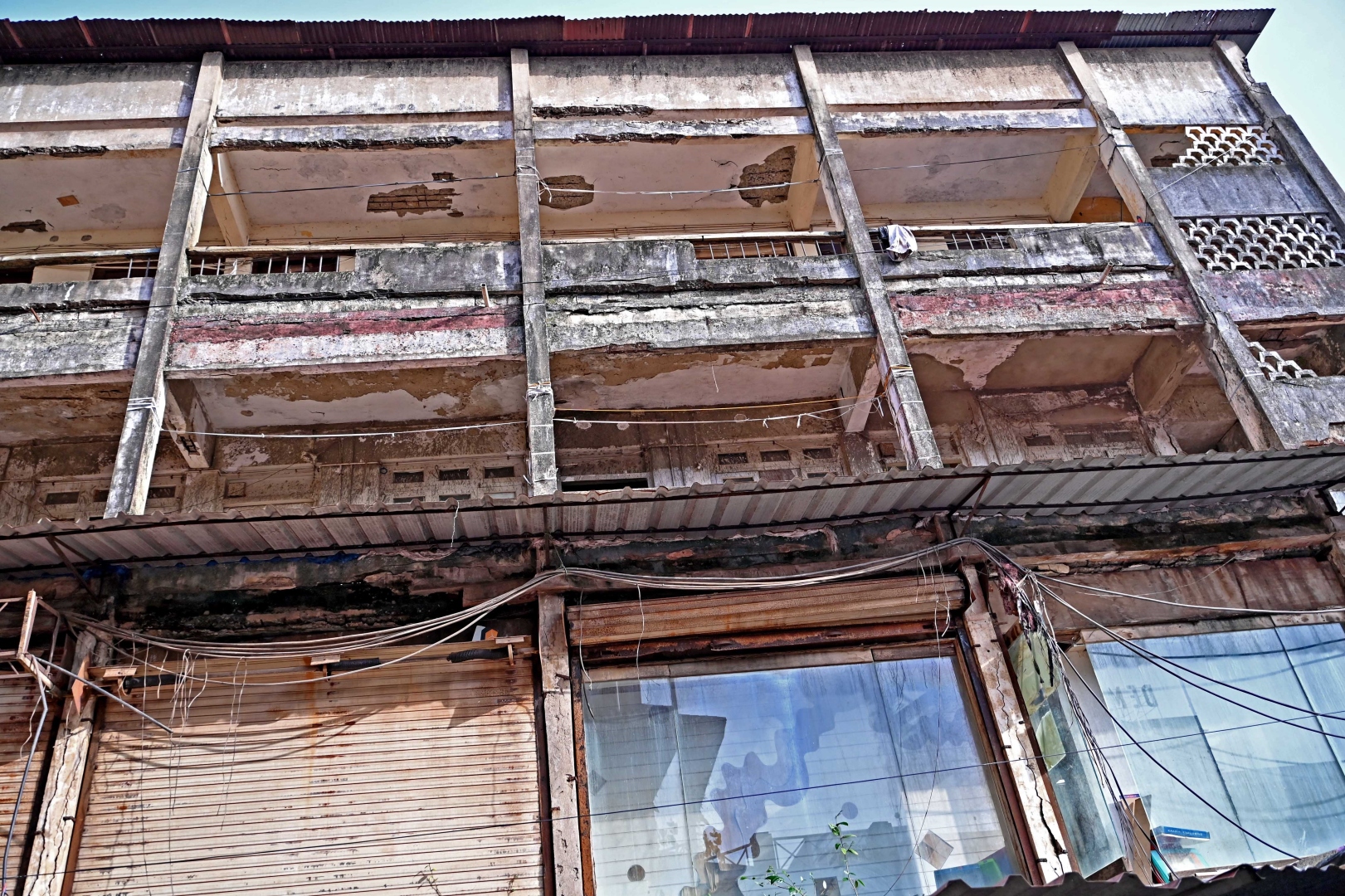
PANAJI
In Goa's cities and towns alone, more than 90 buildings have been enumerated by civic authorities as being 'unstable' and in imminent danger of collapse.
However, due to the nature of ownership, existing tenancy rights and other legal complications, the authorities have thus far managed to demolish just 15 of them.
In some of the cases where the building is not demolished, the final structural stability reports are still pending. In other cases, quasi-judicial hearings are still ongoing.
But in many cases, these old buildings, some more than a century old, are entangled in a web of legal suits and disputes among heirs of the owners or between owners and tenants, complicating the process for the administration to put into play the protocol for demolishing them on account of public safety.
Demolition delays
According to sources in the Department of Municipal Administration (DMA), it had listed a total of 92 dangerous buildings in the jurisdiction of Goa's 13 municipalities. The most — 39 of them — were in the jurisdiction of Mormugao Municipal Council, which has managed to demolish only three.
In Margao, the civic body has managed to demolish only three of the 20 buildings listed as unsafe and dangerous. Six were demolished in the Canacona municipal area, while the Mapusa civic body demolished just two of the nine listed as dangerous.
The case of Panaji, the capital city, is intriguing. The city lies in the jurisdiction of the Corporation of the City of Panaji, which has a separate, exclusive law — The Corporation of the City of Panaji Act, 2004 — which has provisions that give the corporation more powers.
Yet the civic administration has failed to demolish even a single one of the 18 buildings which have been listed as unstable and dangerous to public safety.
Last year in October, however, the CCP demolished the old market building which had housed the fish market shed and some meat and poultry stalls, apparently buoyed by a dispute of a political shade with tenants on the upper floors, allegedly controlled by a former CCP councillor, indicating that legal hurdles do not matter when the political establishment has a motive.
Now, the CCP has taken concrete steps to demolish yet another edifice owned by it in the market area, which houses the Kamal Medical Store on its ground floor.
The CCP has sealed shops in it after a stability report furnished by the Goa Engineering College declared it "unsafe" for occupancy. The building has also been cordoned off and, according to sources in the corporation, it will be brought down "soon" if the courts, which the tenants have moved, do not provide them with any relief.
Legal course
CCP engineer Venkatesh Sawant told 'The Goan' that Sections 270, 271 and 272 give the corporation ample powers to take such action against dangerous buildings after providing notice to the occupants and owners to evict. He said 18 such old and dilapidated structures have been identified, and the GEC has been asked to inspect and furnish structural stability reports.
Some of the buildings identified as unsafe thus are: Navrat Apartments in St Inez, the partly wooden, partly concrete structure of Palacio Hotel behind the Old Secretariat, a section of the Susheela Building, the Progress High School building near the Panaji Church, and the ground-plus-one tile-roofed Vaglo building, which also houses the famed Clube Nacional.
Ageing govt buildings
Two ageing government buildings in Panaji, Junta House and the Social Welfare Department’s head office, have continued to be at risk of collapse, exposing not only staff and visitors to danger but also threatening vital government records and infrastructure.
Government sources told 'The Goan' that the demolition of Junta House has been approved, but a futile search for alternative premises has stalled the process.
“The government has already given a go-ahead for the demolition. The process is delayed because there are no alternative premises to shift these offices. Until suitable space is found, we have no choice but to continue working here,” an official said, also reported by 'The Goan' on May 25.
The 121-year-old Portuguese-era structure, which houses the Social Welfare Department, has also been in a dangerous state. The office’s relocation to the Goa Housing Board complex at Porvorim was announced by the Public Works Department last year. Reacting to the delay in completing the works, the PWD stated that the works have already been expedited and are expected to be completed soon.
Social Welfare Minister Subhash Phal Dessai had publicly acknowledged the dangerous condition of the old building, citing repeated incidents of falling ceiling plaster that endangered staff and visitors.
Last November, the National Buildings Construction Corporation (NBCC) was awarded the contract for the phased redevelopment of six major government properties in Goa, including Junta House, valued at Rs 10,000 crore.